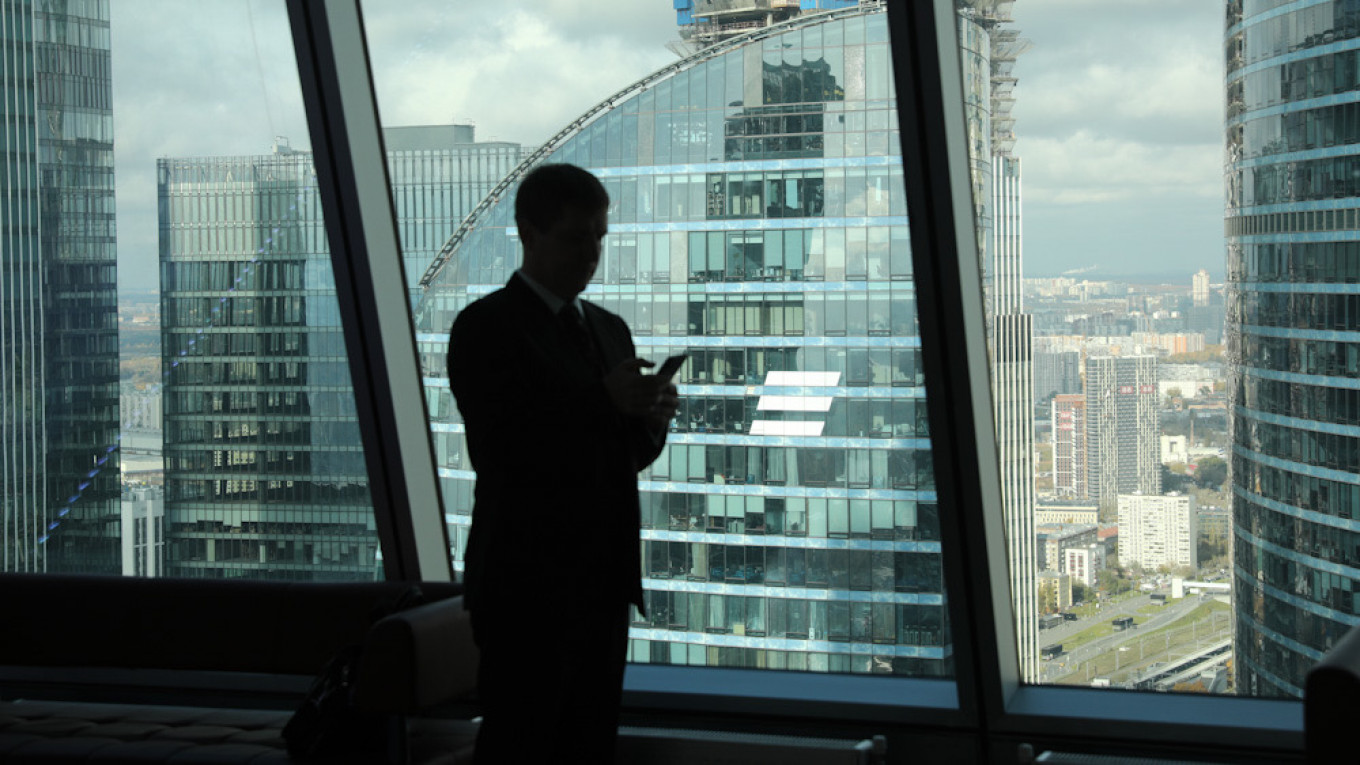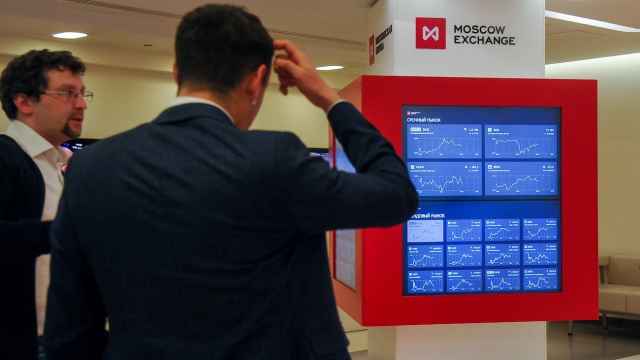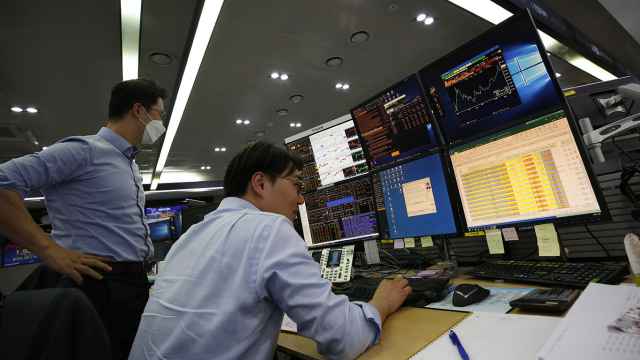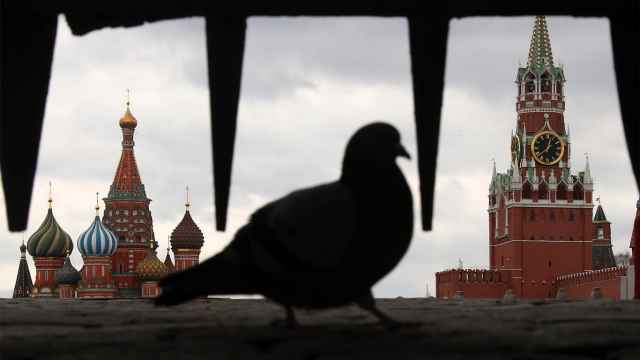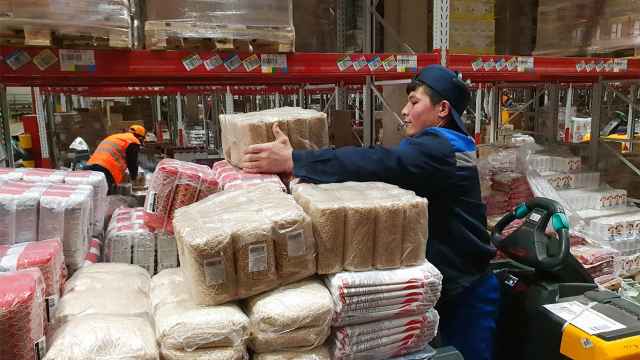Early last year, Russia quietly dropped its long-standing target to become one of the world’s five largest economies.
The move came as part of a sweeping reset of more than 100 socioeconomic goals President Vladimir Putin had wanted to hit by 2024. Citing the unprecedented economic circumstances, authorities said 2030 was now a more realistic deadline for the ambitious agenda. Some goals, like the top-five target, were ditched altogether.
The irony, analysts said, is that 2020 could be the first ever year that Russia comes close to actually breaking into the top 5 — at least when measured on a purchasing power parity (PPP) basis, which takes into account differences in living standards.
That is because by macroeconomic standards, Russia’s $1.5 trillion economy weathered the first year of the coronavirus crisis better than almost every other major economy in the world.
Vindication
“Other countries are doing much worse,” Russian economist Sergei Guriev, a professor at Sciences Po in Paris said at the end of last year. “Advanced economies on average will lose 6% of their GDP — many European economies will lose 10%.” Russia, conversely, probably contracted by just over 4%.
That’s less than the global average, and significantly softer than first feared in the spring when oil — Russia’s most important industry and crucial export — lost 70% of its value as prices crashed below $20 a barrel.
Russia’s other macroeconomic indicators have also held up. While the ruble — which had been battered during previous crises — faltered, slipping 18% against the U.S. dollar, economists said this was the currency playing its role as a “shock absorber.” Moreover, Central Bank policies helped keep the currency slide at manageable levels and avoided the kind of double-digit inflation or financial panic which Russia has seen in previous crises.
Policymakers have seen Russia’s economic performance as vindication of its stability-first approach adopted in the years following its annexation of Crimea. That included an oil production pact with the OPEC cartel to manage prices, building up a $170-billion sovereign wealth fund, minimizing public debt, and a “fiscal rule” to cut the vicious cycle of falling oil prices, rapid ruble devaluation and runaway domestic inflation.
The IMF recently lauded that roster as a “sound fiscal framework and substantial policy space” — in other words, Russia was well-prepared.
However, Moscow’s better-than-most macroeconomic performance has belied a lingering problem that the economy will have to grapple with coming out of the pandemic.
“In the short-run we have stability — low government debt, low external debt and very high reserves. You’d say this is fantastic, right?” said Elina Ribakova, deputy chief economist at the Institute of International Finance (IIF).
“But the issue is that over the medium-term we have every possible imaginable problem: an inability to generate growth.”
Forecasts for what happens after the pandemic bear that out.
As vaccinations roll out and countries emerge from the coronavirus shock, Russia will fall from the top of the economic league tables back down to the bottom. Japan and Brazil are the only G20 members set to grow slower than Russia over the next two years, the Organization for Economic Cooperation and Development (OECD) has predicted. Most forecasts say Russia’s economy won’t return to its pre-coronavirus size for at least another 18 months.
Beyond that, longer-term weaknesses remain. The IMF estimates Russia’s medium-term growth potential at just 1.6% a year — extremely low for a country at Russia’s income levels, once seen as a textbook case of a rapidly developing “transition” economy which was on track to catch-up and overtake some European countries in terms of living standards.
The institution also warned that the Russian government’s conservative economic policies could further dampen immediate recovery — particularly in the context of a stubborn second wave of infections which has pushed the country’s healthcare system to its limits.
Moscow’s restrained economic support package started winding down in the summer and has been barely existent during the second wave. The Kremlin avoided instigating any nationwide mandated lockdowns, and used that as justification not to extend a new round of stimulus packages. Comments from government figures also show how averse decision makers are to the kind of large scale handouts or wage subsidies which characterized responses across Europe and North America.
Both the IMF and World Bank believe this could be a mistake. They want Russia to be more generous, boost its “very low” social security payments and extend tax deferrals, cheap loans and business grants beyond just the most severely affected firms — especially if vaccine rollout is slower or more problematic than expected.
But Moscow appears to be in no mood to loosen the purse strings.
“It’s a myth that Russia’s anti-crisis package was small,” deputy finance minister Vladimir Kolychev told the Financial Times in December, dismissing the idea that the country’s $170 billion sovereign wealth fund should have been tapped or that more support could have been offered to citizens and small businesses.
Some other Russian economists support this decision, highlighting that Russia doesn’t have the same potential to spend and borrow as freely as advanced Western economies.
“We don’t have a reserve currency and can’t take the same measures. Although the support was quite modest in Russia, it turned out to be very effective,” said Mikhail Zadornov, chairman of state-owned Otkritie Bank.
Austerity again
A recent three-year government spending plan shows that Russia is set to return to the austerity which characterized the pre-coronavirus period. A deficit of 4.4% of GDP in 2020 will be cut to just 2.4% in 2021 — the lowest of any emerging market economy, the IIF calculated.
With borrowing costs and debt levels close to record lows, as well as hundreds of billions of dollars stashed away, other economists also say Russia’s fiscal conservatism will act as “a drag on growth,” as the World Bank put it in a recent report.
Alfa Bank’s Natalia Orlova said the government’s plans could reduce growth by as much as two percentage points — equivalent to more than a full year of expansion in more normal times. With those numbers, if Russia had chosen to maintain spending levels, it could have fully recovered the hit to GDP by the end of 2021.
Instead of government spending, Russia is relying on its 145 million inhabitants to heave the economy out of recession through spending, chief Russia economist at ING Bank Dmitry Dolgin said.
Most of Russia’s growth over the coming years is expected to come from a rebound in consumer spending. Policymakers will be hoping the money wealthier Russians were able to stash away during 2020 will outweigh the hit to jobs and wages inflicted by the pandemic. Almost a fifth of disposable incomes were saved, the World Bank estimates, the highest proportion in six years.
Economists are unconvinced. With employment “below potential” and a “generally cautious mood at the household level,” relying on Russians’ household consumption to power the recovery could be a tall order, Dolgin reckons.
Even before the pandemic, Russians had already suffered a decade of low living standards — with disposable incomes down around 8% on 2013 levels. Last year wiped off another 5%, Alfa Bank estimates. More than half of all households had no savings whatsoever on the eve of the crisis.
Meanwhile, faced with a slow-burning demographic crisis, bruised businesses, federal budget cuts and mass outflow of labor migrants, employment levels are set to remain significantly below their pre-crisis levels well past 2021, providing another potential drag on hopes for a consumption-led recovery, the OECD expects.
Six in ten Russians told the Levada Center opportunities to earn a decent wage had got worse over the last 12 months, while more than 40% said they were scared about a growth in unemployment and a fresh economic crisis. Fearful of the impact rising food prices were having on Russian households, in December the Russian government introduced price controls on butter and sugar — a policy it also reverted to during the 2015 economic crisis.
Analysts at Russia’s Central Bank also appear cautious. In a recent paper, five of its economists found the knock-on effect of the pandemic — lower household incomes, voluntary self-isolation, weak consumer confidence — are both more damaging and longer-lasting than the immediate effects such as forced business shutdowns and lower global oil prices.
“This means that even after the restrictive measures are completely lifted, and external demand recovers, the recovery of the Russian economy will take time,” they concluded.
Investment drive
“While near-term recovery will be contingent on the stemming of the pandemic, longer-term economic prospects will depend on boosting potential growth,” the World Bank highlighted, summarizing an uncontroversial consensus even among Russia’s policymakers about the need to do something to boost an economy which has flagged over the last decade.
On that front, the government continues to talk up the need for investment. In another attempt to revert to pre-pandemic policy as quickly as possible it is doubling down on the vast $360-billion National Projects ten-year investment program.
Actually spending the money has proved one of the scheme’s biggest drawbacks since it was formulated in 2018, with many initiatives having fallen behind under former prime minister Dmitry Medvedev. A flurry of activity in the final months of 2020 has raised hopes that Medvedev’s successor, Mikhail Mishustin, might be the answer.
While welcoming the National Projects, international organizations say they won’t be enough. The World Bank encouraged Russia to take a look at what it can learn from previous bouts of impressive growth if it wants to revitalize the economy.
“Russia’s early development successes resulted from undertaking ambitious structural reforms, a commodity cycle boom, and taking steps to promote greater economic openness,” it said.
So far, there are few signs Moscow is keen on that approach.
A Message from The Moscow Times:
Dear readers,
We are facing unprecedented challenges. Russia's Prosecutor General's Office has designated The Moscow Times as an "undesirable" organization, criminalizing our work and putting our staff at risk of prosecution. This follows our earlier unjust labeling as a "foreign agent."
These actions are direct attempts to silence independent journalism in Russia. The authorities claim our work "discredits the decisions of the Russian leadership." We see things differently: we strive to provide accurate, unbiased reporting on Russia.
We, the journalists of The Moscow Times, refuse to be silenced. But to continue our work, we need your help.
Your support, no matter how small, makes a world of difference. If you can, please support us monthly starting from just $2. It's quick to set up, and every contribution makes a significant impact.
By supporting The Moscow Times, you're defending open, independent journalism in the face of repression. Thank you for standing with us.
Remind me later.



